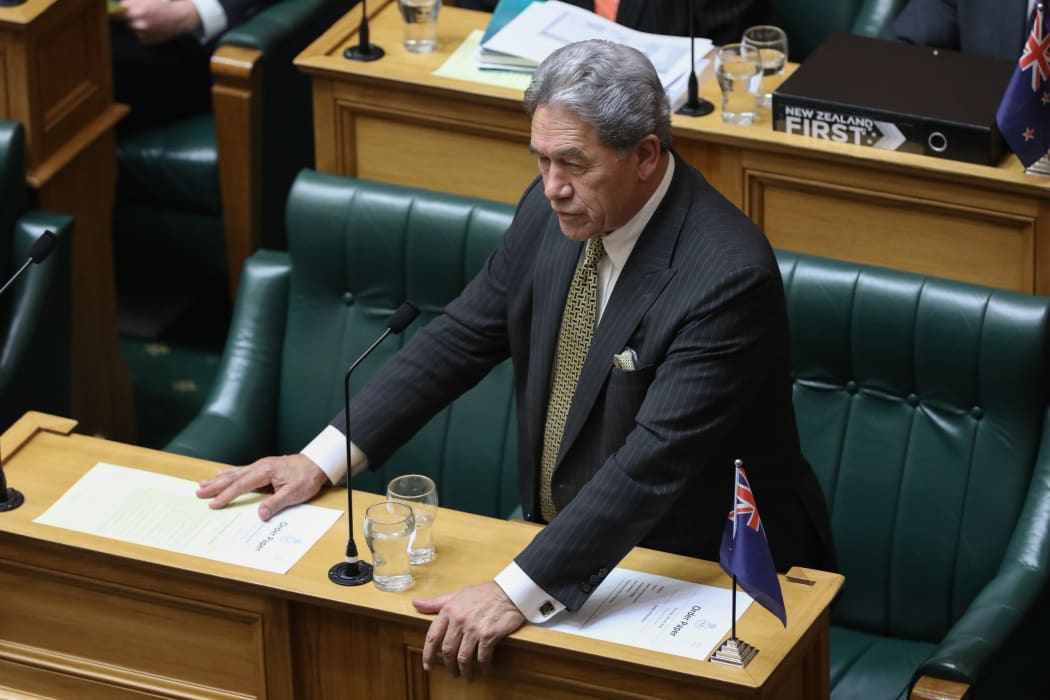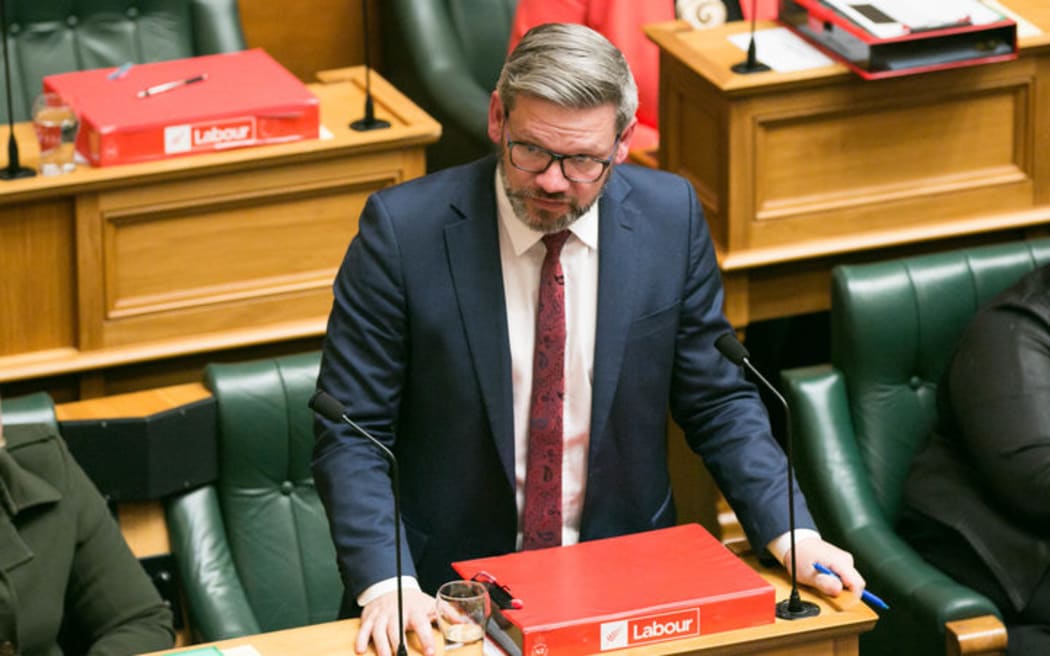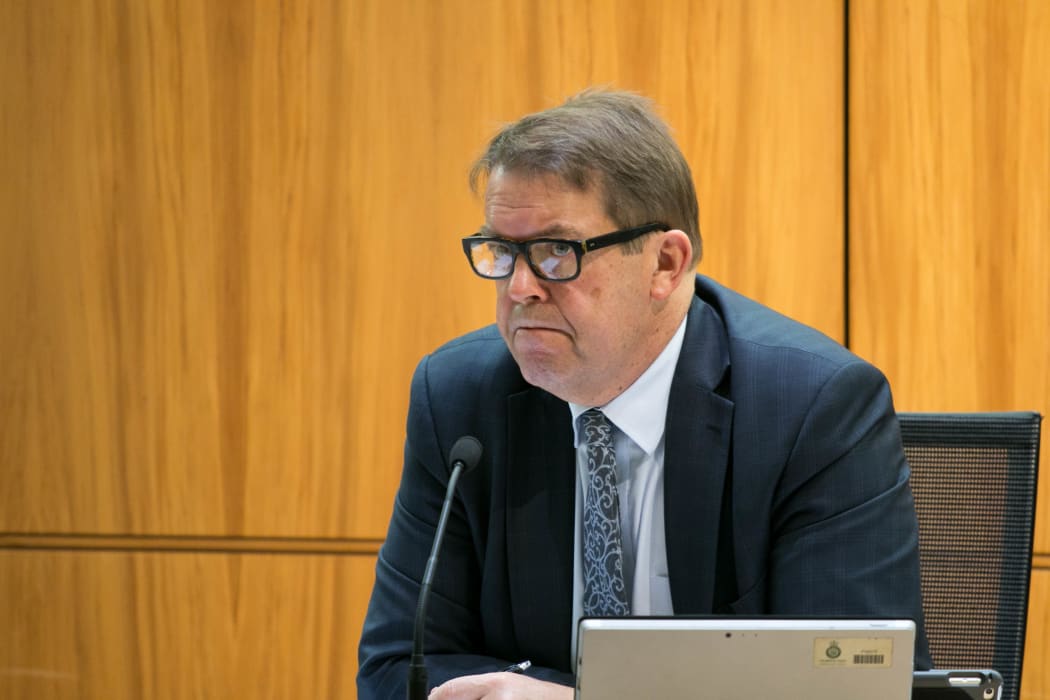This week during Oral Questions the opposition devoted a handsome portion of their questions to a single topic… the immigration case surrounding the Czech national, Karel Sroubek. At least different opposition MPs asked questions during the week of various ministers on the same subject.
Similar questions to different ministers sometimes received quite different kinds of responses, and together illustrated a range of tactics and the rules that guide them.

Winston Peters as acting Prime Minister Photo: VNP / Phil Smith
On Wednesday the Deputy Prime Minister Winston Peters employed a combination of defense and attack. His answers queried whether the decision-making minister was given the right information, but also alluded to the original case being older than the minister’s tenure (i.e. that it may stretch back into the previous administration).
But the Minister of Immigration had a very different approach. Iain Lees-Galloway answered two primary questions with a prepared statement.
"As the member is aware, there is an investigation under way into this matter. It is important that I do not prejudice the investigation or any possible further action. Because of this ongoing work, it is not in the public interest for me to answer questions on the matter at this time. I'll be able to provide more information at the appropriate time."
And then answered successive follow-up questions with reference back to his initial response.
Sometimes the opposition asks questions for the sake of the question, because the key intent is the opportunity to make an accusation or publicise some information.
On this occasion though the opposition wasn't impressed with the Minister's responses and Mark Mitchell complained to the Speaker by making a point of order that the Minister had not addressed or answered his question.

Workplace Relations Minister Iain Lees-Galloway Photo: VNP / Daniela Maoate-Cox
What do the rules demand?
The rules say that minister’s should answer questions. Precedent and practice (speakers rulings) have watered that down slightly by allowing that ministers should 'address' questions. Address is hard to define, but the response has to arise from the question, but the answerer doesn't have to satisfy the asker in how that is done.
As the Speaker Trevor Mallard, intimated on Thursday, not liking the answer is not a point of order.
There are other outs for a minister as well, a number of which have also come up this week. For example, while it is allowable to ask a hypothetical question, a minister is not required to answer one.
And if you want a minister to give an answer that would require some research or preparation, then that question needs to be in the primary, pre-notifed question to give the minister time to get the answer. That was what happened on Thursday in this exchange between Trevor Mallard and Jonathan Young.
"Sir, so there is no requirement for the Minister, when she makes a very specific statement the day before, to quantify that the following day?"
"Unless the member has the wit to put it down as a primary question, there is no requirement."

National MP Jonathan Young chairing a Select Committee Photo: VNP / Phil Smith
The public interest
The response that Iain Lees-Galloway was employing is that giving an answer to the question would be contrary to the public interest.
In short, if a minister believes that "the public interest would be imperiled by giving the information sought, then the Minister may decline to answer or give only a limited answer."
The person who makes this call is the minister. And they might consider a range of factors including privacy, commercial sensitivity, security, public order, it being sub-judice, a concurrent independent inquiry, or national security.
The rules make clear that this is the minister's call, which might make it sound like an all-purpose get-out-of-jail-free card. It isn't. Parliament's bible "Parliamentary Practice in New Zealand", which discusses and explains the rules, laws and conventions of Parliament says this:
"Ultimately these are matters for the Minister to judge, not the Speaker. However, if a Minister were to cite the public interest in a situation that was clearly outrageous, as a way to avoid answering the question, then the Speaker could intervene."


